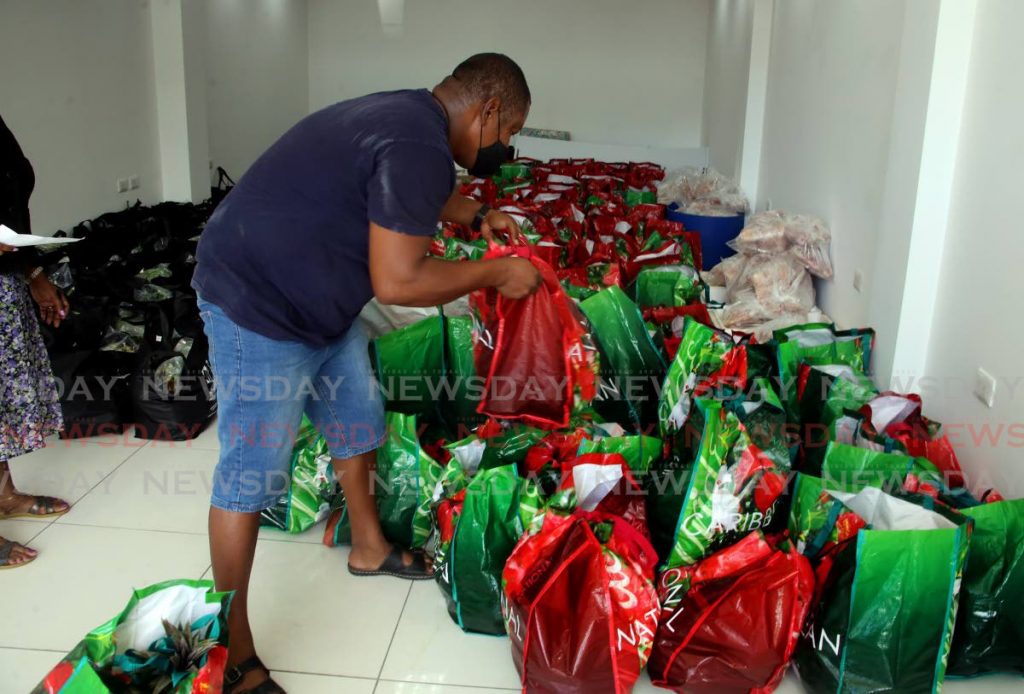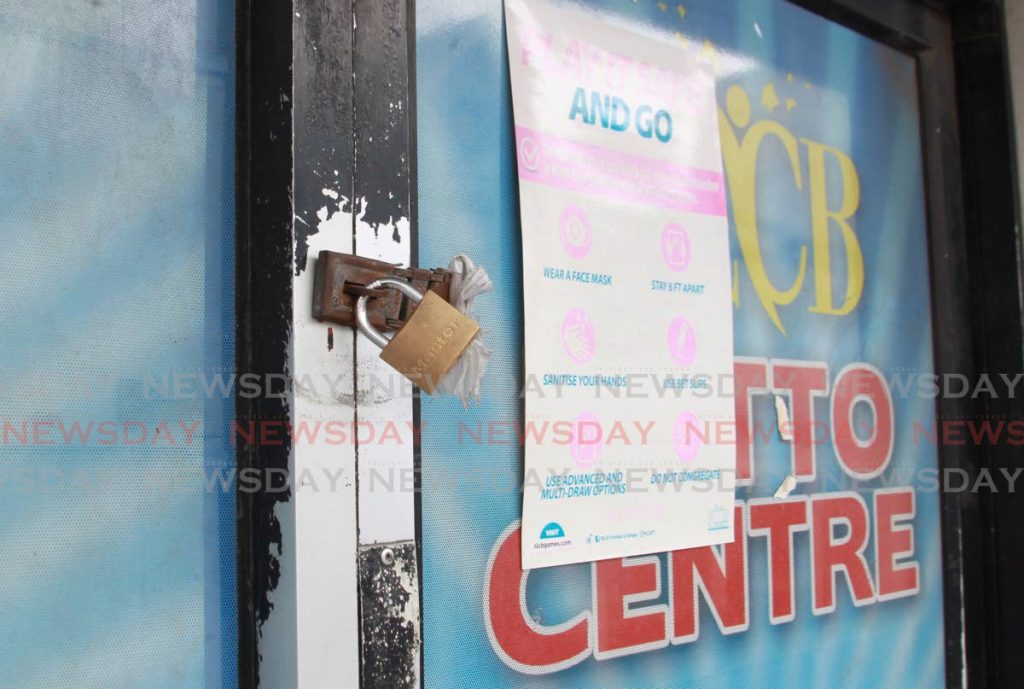Families struggle to survive on government relief

MARRYING her passion of cooking with her love for children, a San Fernando mother of two left a cushy job as a property manager to become a school’s “cafeteria lady” four years ago.
Things were going well. She had a plan to expand her business and make it into a franchise.
Then, in March 2020, all schools were closed as a response to covid19 and she became unemployed. Kathy (not her real name), an independent 46-year-old, told Sunday Newsday the thought of having to rely on her daughter and elderly mother has been mentally exhausting.
She lamented: “It’s beyond humbling to ask for help. It’s not natural for me. I’m the one who shows up to help. I’m the dependable one.
"I’m worried about my mom. This is not what she should be doing in her retirement. She spent her whole life taking care of me. I want to stop burdening her.”
“She is stressed about helping me pay bills. I’m her only child, it’s not fair and I feel like a failure to my daughter. It is like she looks down on me for my choices. I used all the resources I had on my business. I am ruined. She has a burden of a family that she doesn’t want. It’s not fair.”
Kathy, who has a master's degree in marketing said she applied to various fast food restaurants hoping to find a job – any job.
She did not expect to be out of a job for so long.
Last year, she recalled, “We were doing so good in terms of (covid19) numbers. I was sure that by September things would be back to normal.
"I applied for salary grant, rental assistance and food card. I was told that I had been approved for the salary grant and food card. None of the grants have come through to date.”
She is one of 7,000 people still awaiting financial assistance from the State. Because she is a sole trader she is eligible for social support assistance through the Ministry of Social Development and Family Services.
She said she survived through God's grace, her mother, a few friends and her daughter.
Shinelle Quashie, the mother of seven, said she was able to survive on income support grants totalling $6,000 last year by buying in bulk and cutting back on expenses.
"The process last year was very easy for me. I applied in April for the grant and in June I received $3,000 on my debit card. I made a large amount of groceries – I bought in bulk."
She was pregnant at the time and got further help through the generosity of hospital staff. Her second payment in August was used to pay bills and again to stock up on groceries.

As a domestic worker, Quashie does not contribute to the National Insurance Scheme (NIS), so she could not apply for a salary relief grant. She said she worked with a strict budget and anything she deemed unnecessary, she did not buy.
“I cut down on meat. I hardly ate that. The country was on lockdown, so buying fast food on a Friday and Saturday was out. I was home-cooking and baking all the time, and that helped me to actually save a lot,” said the Chaguanas mother.
Another recipient of financial assistance said he also survived by buying in bulk. The auto mechanic from Marabella, who did not want to be named, said he applied for relief as a sole trader in June 2020. He received his money in February.
To make ends meet he used up $7,500 of his savings. He received $4,500 for a three-month period.
“I survived on hampers from good Samaritans and the little savings I had,” said the father of two and sole breadwinner.
“I cut out using the air conditioning at home, and less television and lights on in the house at night. I also went to a wholesaler with my brother-in-law, who is a member, and bought my groceries in bulk. The hampers really helped me a lot.”
Gemma De Silva, the mother of one, said she applied for the salary relief grant and received $4,500 in total, two-thirds between May and June and the rest in December. She worked at the Maracas Bay Facility, but with beaches closed, she and her co-workers are now jobless.
“My husband was still employed during the (first) closure, so his income helped at times. We went back out to work on June 22, but that was short-lived, because the beaches closed again in the middle of August. I had money saved, so I used most of that.”
De Silva returned to work in October. Now, with beaches closed again in April, she is hoping to get further relief, since her husband is no longer receiving a full salary. She also has to support her ailing mother with bills. The couple has three children but not with each other, and also have to support them.
“We cut out internet on our phones (data plans). No treats for the kids. We cut back on groceries and only bought the necessary or cheaper products. We would always be on the lookout for which grocery has a sale on items.”
Jenna Perez, who lives in Morvant, said she received $4,500 last year when restaurants were closed between March and May. Now, with restaurants closed again, she has applied for and is hoping to receive some aid again.
“When I received the money, firstly I said thank God for small mercies, because the government didn’t have to, so I was grateful."
But, she said, "At the end of the day $1,500 is not enough to make groceries for a month, because food prices is very high and every time you visit the grocery it's a different price on the items, by $10-$20 more. The money was not enough.
"But I had to try and make it work.”
She said as the sole breadwinner in a house of five, being unemployed has brought severe challenges. Since she has been without a steady income for a year, her utilities have been cut except for lights. Her internet and cable bills were cut because she could not pay the bills.
What aid is available?
On March 27, the Prime Minister warned during a media briefing that the country could not afford financial relief as it did last year when the country was locked down at the start of the pandemic. Dr Rowley said there is no money to finance rental assistance, food supplies and job loss grants. He called on the country to “err on the side of respecting the consequences, because they are so grave.”
Earlier this month Finance Minister Colm Imbert said the Government will find some $80 million to pay social relief grants to help those who will not be able to access salary relief grants and other forms of social assistance.
Last year, he said, some $354 million was spent on relief through the Ministry of Social Development and Family services. The 2020 relief package carried a tab upwards of $5 billion. On May 21, Imbert said of the 93,000 applications for salary relief grants, 86,196 were paid.
On May 21 Imbert promised $300 million in relief grants for those who will be affected by the latest restrictions. He said $30 million will fund 25,000 food baskets for May, which may be extended all the way through to September. Maxi-taxi operators, cultural artists and entrepreneurs will also be financially assisted, he said then.
To fund some of the relief, the Government withdrew $900 million from the Heritage and Stabilisation Fund last year, which went to pay salary relief grants and other social support assistance.


Comments
"Families struggle to survive on government relief"